Creating a Career in a Changing Climate
In this interactive session, students and others looking to change their career trajectory participated in short informational discussions with professionals who combine communication skills and their commitment to planetary health in a variety of career paths. Using a speed-networking format, participants moved around the room, selecting the professionals with whom they wanted to speak. Participants left with at least three "takeaways" from each professional they meet and a bevy of new connections. 2025 Planet Forward Summit Workshop |
Meet our professionals: |

Juliana Carvalho
Engagement Associate, The George Washington University Office of Sustainability
Juliana Carvalho is the Engagement Associate at the George Washington University Office of Sustainability, where she works with students, staff, and faculty to shape culture around sustainability. Juliana has a background in wildlife research, science communication, and community engagement. She holds a B.S. in Biology and Evolutionary Anthropology and a Master of Environmental Management from Duke University. Juliana began her career in marine biology at The Marine Mammal Center, where she assisted in marine mammal rescue and rehabilitation and conducted research on injury identification and rescue best practices. She later worked as a research technician and laboratory manager at the Duke University Medical Center, contributing to neuroscience and evolutionary genetics research focused on neurodegenerative diseases and the evolution of cognitive abilities in whales and dolphins. Juliana has also worked in environmental nonprofit spaces, including as a Stanback Fellow at Defenders of Wildlife, where she supported human-wildlife coexistence initiatives. At her current role at GW, Juliana oversees the office’s communications and manages The Loop, GW’s free clothing exchange store.
- Juliana’s advice:
- Don’t be discouraged by jobs you don’t love, learn from them: Every job or internship, even the ones you don’t enjoy, teaches you something valuable. Figuring out what doesn’t align with your interests or values is just as important as discovering what does. Use those experiences to reflect, pivot, and move closer to work that truly fits you.
- Look beyond the job title and understand the day-to-day. It’s easy to be drawn to a career based on its mission or impact, but it's important to ask: Do I enjoy the daily tasks this job requires? Talk to people in roles you're curious about and learn what a typical week looks like. Understanding the lifestyle and work rhythm can help you make more informed decisions.
- Explore different angles of your interest area: If you’re passionate about a field, try engaging with it in different ways. For example, I explored wildlife conservation through lab research, field work, and nonprofit roles. Each gave me a new perspective and helped me figure out where I felt most energized and effective.

Samantha Clark
Managing Photo Editor, National Geographic
Samantha Clark is the managing photo editor for short-form storytelling at National Geographic. She leads teams of photo editors who commission and curate photography for digital, print, and social versions of the magazine. She previously was a senior photo editor, assigning photographers around the world, working on the environment and science desk, and producing feature and cover stories.
She specializes in conceptualizing projects with rigorous research and producing for powerful visuals. She’s also working on digital and social content strategy that’s informed by data and focused on growth.
Prior to joining National Geographic in 2018, she worked at NPR, KQED, and Pier 24 Photography.
- Samantha’s advice:
To have a job like mine, you need:
- Endless curiosity
- Great visual and narrative sense
- Collaborative spirit
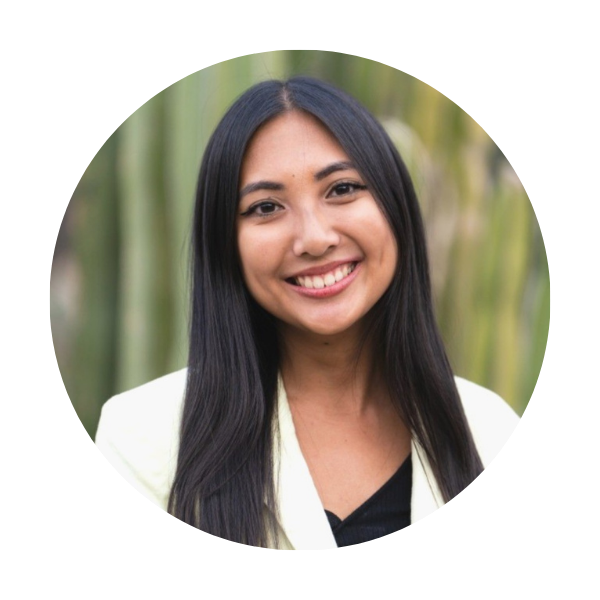
Francesca Edralin
Consumer Engagement Associate Specialist, World Wildlife Fund
Francesca Edralin is currently a Consumer Engagement Associate Specialist at World Wildlife Fund (WWF), where she works with companies on consumer engagement campaigns focused on environmental education, fundraising, and behavior change. Francesca's current role at WWF uniquely intersects her background in both environmental storytelling and corporate sustainability. An alumnus of WWF’s Building Relationships, Inclusivity, Diversity, Growth, and Excellence (BRIDGE) program, Francesca also leads initiatives that promote youth empowerment within the organization and currently chairs WWF's Early Conservationist Network.
Prior to WWF, Francesca graduated from GW in 2022 with a B.A. in International Affairs (concentration in International Environmental Studies) and minors in Sustainability and Journalism / Mass Communication. At GW, Francesca was a Correspondent and Sustainable Storytelling Fellow for Planet Forward, Community Engagement Assistant for SustainableGW, President of GW UNICEF, and alumnus of the Women's Leadership Program (WLP) and UN360. Outside of campus, Francesca developed her skillsets in environmental research and communications through internships at the State Department, USAID, Mongabay, and the Pulitzer Center. She is incredibly thankful for the generous opportunities that the GW and Planet Forward network have provided her to help kickstart her career in environmental storytelling and sustainability.
- Francesca’s advice:
- Learn outside of the classroom. DC is your oyster! Take advantage of internships, on-campus organizations, and off-campus programming to soak in what the environmental community around you has to offer. I learned so much about how to apply my academic interests to real-word, professional opportunities by branching outside of the classroom.
- Invest in your authentic personal brand. Crafting a personal brand and marketing what makes you unique goes a long way when seeking professional opportunities. Embrace what makes you passionate about environmental work, and don't shy away from authentically sharing your personal journey in this field.
- Embrace the intersections within sustainability. There are so many angles to enter the sustainability field - from academia to corporate to public sector to communications. What I've noticed is that some of the most successful professionals in sustainability understand and can communicate about environmental topics through a wide range of lenses, connecting dots across silos.
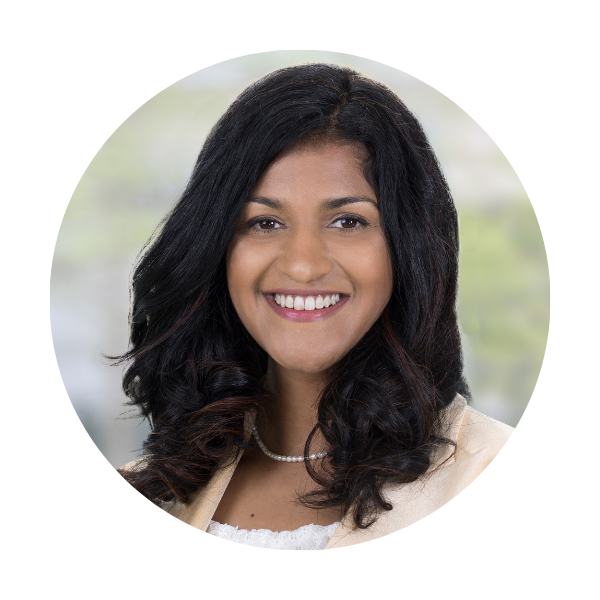
Deepti Gage
Associate, Beveridge & Diamond
Deepti Gage counsels clients on a range of critical ESG issues at Beveridge and Diamond, P.C. Deepti’s past legal and project management work in the non-profit and corporate worlds has helped build the foundation for her ESG practice. She understands the perspectives of diverse stakeholders and develops holistic solutions to some of the most pressing issues related to climate change, the circular economy, supply chains, and resource efficiency. Deepti assists clients in navigating carbon markets, including emission reduction generators and companies seeking to procure emissions reductions. Deepti advises clients on circularity strategies with a particular focus on multilateral environmental agreements, including the Basel Convention, the forthcoming Global Plastics Treaty, and related multilateral agreements. She also provides compliance advice on extended producer responsibility requirements, human rights considerations impacting trade, and responsible sourcing. Deepti received her B.S. from Indiana University and her J.D. from the George Washington University Law School.
- Deepti’s advice:
The three most important attributes needed for a job like mine are:
- Being a go-getter and creating your own opportunities—whether it be through networking or anticipating what the next big issue will be and ways to solve it
- The ability to perform under high stress with tight timelines while considering multiple stakeholders
- Research, communication, and project management skills
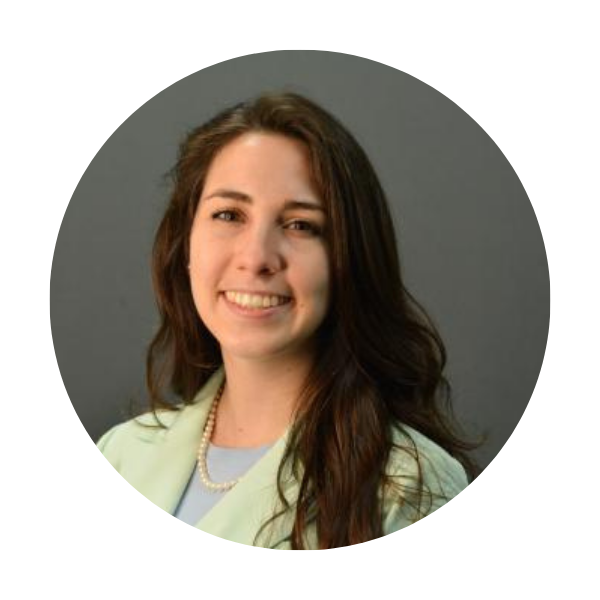
Angela Melidosian
Assistant Professor of Sustainability, The George Washington University
Angela Melidosian is a professor for the Alliance's Sustainability Minor. Her mission is to educate and empower students to live sustainably and advocate for sustainability. Her research and work address the United Nation’s Sustainable Development Goals and the connections between sustainability and education, ethics, gender, psychology, Latin America, and death. She received both her PhD in Interdisciplinary Ecology and MA in Sustainable Development Practices from the University of Florida. Prior to GW, she created and instructed the Active Learning Program, an internship and research program empowering students to address global sustainability problems while developing their professional skillsets, and brand. She is excited to help GW students reach both their sustainability and professional goals.
- Angela's advice:
- Look at job postings before you need to apply for jobs-- examine job descriptions to see what common required and preferred degrees, skills, and experiences appear in most job postings and ensure you develop those skills and experiences during your college career.
- Conduct informational interviews to learn more about different career paths in your field, specific job positions, and potential employers--like GW, many schools have optional servers for connecting with alumni who are interested in chatting with undergraduates considering similar career paths.
- Graduate school is challenging and takes a lot of time and financial resources. If you are considering graduate school, examine job postings and conduct informational interviews before applying to determine if, and what type of, graduate school is necessary for your specific career goals.
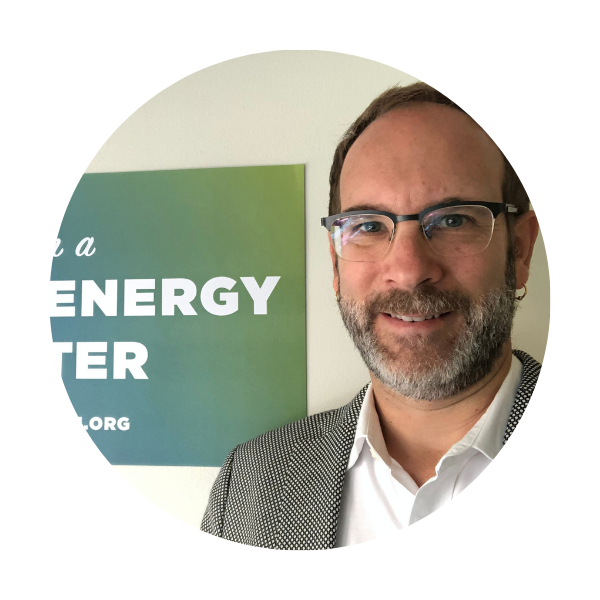
Jeremy Pittman
Senior Director, Grassroots Engagement, EDF
Jeremy Pittman is senior director of grassroots engagement for the Environmental Defense Fund and EDF Action, where he manages a team of field organizers, digital campaigners, and data experts who together are responsible for growing the organizations’ membership and mobilizing advocates to take meaningful actions to advance EDF's policy priorities. Jeremy also leads work to elect climate champion candidates on behalf of EDF Action and EDF Action PAC.
Prior to joining EDF, Jeremy worked for twelve years as deputy national field director at the Human Rights Campaign, the nation's leading advocacy organization working for lesbian, gay, bisexual, transgender and queer equality. In this role, he managed a team of regional field directors and organizers to pass pro-equality laws, defeat anti-equality efforts, and elect pro-equality candidates by mobilizing HRC members and supporters and leading or representing HRC in coalition campaigns. He led field campaigns to pass marriage equality laws, block anti-LGBTQ state legislation, pass the Matthew Shepard/James Byrd Jr. Hate Crimes Prevention Act, and repeal Don’t Ask, Don’t Tell.
Jeremy moved to Washington from Boston, where he left a corporate consulting career at Towers Perrin to help build and run MassEquality, the political campaign that successfully protected the state's first-in-the-nation marriage equality. Jeremy lives in Washington with his husband Bill.
- Jeremy’s advice:
- Listening is usually at least as important as talking.
- Don’t be afraid to ask for help. (Helping you may be the most meaningful and exciting part of someone’s day!)
- Working on an election campaign is a great way to get a job with an elected official. (How many congressional staffers got their starts on campaigns? A lot!)
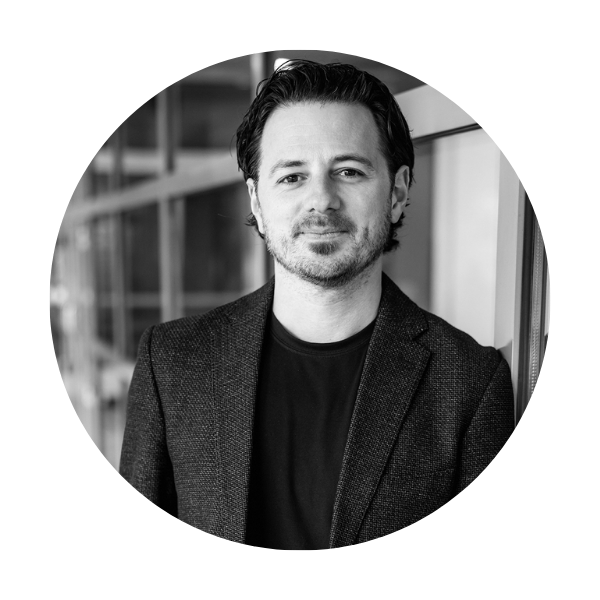
Dan Reed
Associate Director of the Center for Climate Change Communication, George Mason University
Dan Reed is Associate Director of the Center for Climate Change Communication (Mason 4C) at George Mason University. Dan is the chief operating officer at Mason 4C, and oversees communication, program strategy, operations, and development efforts for the Center's research and programs. He is an experienced communication professional and higher education leader with a history of developing creative content, programs, partnerships, and public events that elevate the conversation around science, sustainability, and our planet.
Prior to joining George Mason, Dan was director of Planet Forward at The George Washington University's School of Media and Public Affairs, where he elevated the program into a recognized media and educational platform that trains and empowers young environmental storytellers. A practitioner and educator, his work has been seen on PBS and Bloomberg Television, and he has taught environmental storytelling and digital media production courses at George Mason, GW, and Middlebury College’s School of the Environment. He currently serves as advisory council chair of Planet Forward.
- Dan’s advice:
- Don’t wait to get started. You don’t have to be a scientist with decades of experience to make a difference. Your voice matters right now.
- When you talk about climate change, you are taking climate action. Telling stories and starting conversations has real impact.
- Make your diversity of interests your strength. Do you love science, but also TikTok? Creative storytelling and activism? Design and data? Perfect. We need all kinds of skills and styles.
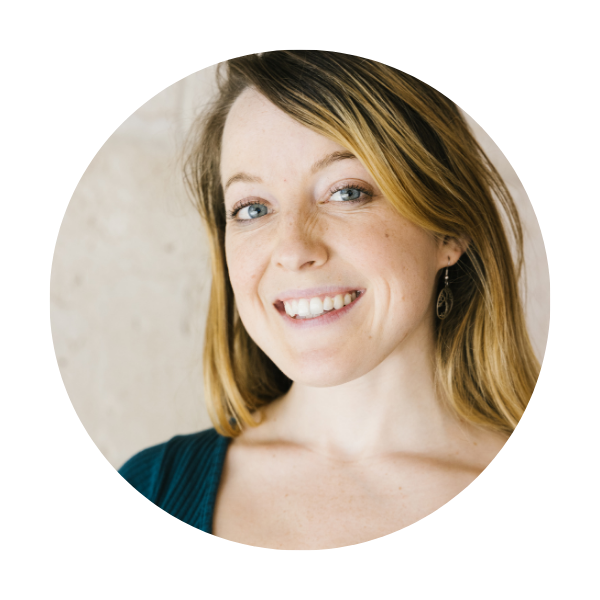
Joy Reeves
Director of Policy and Strategic Development, Rachel Carson Council
Joy Reeves is an award-winning science communicator, energy justice advocate, and climate cartoonist from Washington, D.C. She currently works as the Director of Policy and Strategic Development at the Rachel Carson Council, an environmental justice nonprofit focused on advocacy against the wood pellet industry, synthetic pesticides, and false climate solutions. In 2024, Joy received a Master’s degree in Environmental Management with a specialization in Environmental Economics and Policy from Duke University, where she also earned her Bachelor’s degree. During her time as a Planet Forward correspondent, she was named a 2024 Storyfest winner, leading her to publish a piece on marine iguanas in the Galápagos. Joy’s passion is in environmental storytelling, as she has received formal training in science communication as a Huang Fellow, founded the Environmental Comics Classroom, and authored the book Growing Up in the Grassroots: Finding Unity in Climate Activism Across Generations, published in 2020. Joy has represented youth and faith-based constituencies in COP28 in Dubai, where she lobbied European Parliament and OPEC. Joy was named a Udall Scholar in 2021 and hopes to continue her career in public service and nonprofit leadership. Her other professional interests include environmental conflict resolution, federal energy policy, and community-based environmental management.
- Joy’s advice:
- Always be the person who takes initiative. In small teams, small organizations, or even group projects at school, the number one skill that will make you stand out is taking initiative when tasks are being delegated. Don’t be the person who sits back and waits to be handed an assignment reluctantly while the group sits in silence. If you have the time, capacity, or ideas, volunteer your passion toward the goal!
- Before you graduate, learn (or dabble in) each of the following: 1 coding language, 1 project management software, 1 foreign language, 1 “research” experience/skill of any kind, 1 published piece of media or writing, 1 advocacy encounter with local or national government. These will give you kind of a “jack of all trades” repertoire in the NGO policy world, where you’ll often find yourself doing a million things at once and randomly calling upon old skillsets in interviews/projects.
- Call yourself what you are! This is the best piece of advice I’ve ever received in my career. For example, when you’re putting together your resume, cover letter, or elevator pitch, it’s easy to fall into a trap of self-doubt and say, “But I’m not a cartoonist! I’m not syndicated with a national newspaper, so I can’t call myself one!” Do you draw comics? Call yourself a cartoonist. Do you work in a lab? Call yourself a scientist. Did your writing get published, or recognized in Storyfest? Call yourself a published or award-winning writer. The Impostor Syndrome isn’t worth it—trust me!
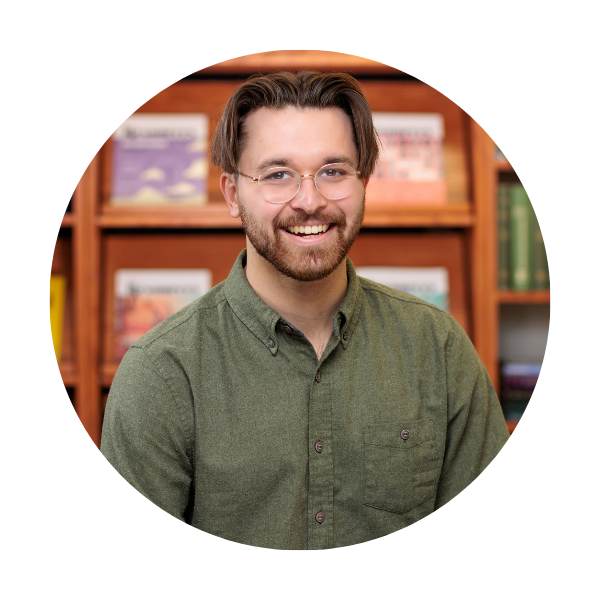
Nicholas Roy
Research Associate, Resources for the Future
Nicholas Roy is a research associate at Resources for the Future (RFF), a nonpartisan think tank focused on issues related to energy and the environment. He has worked on US national and state energy policy. At the federal level, Roy uses mathematical optimization techniques and simulation modeling to analyze the impacts of clean energy tax credits, renewable energy standards, and emissions pricing on the power sector. His analysis has informed the legislative negotiations for Build Back Better which ultimately resulted in the Inflation Reduction Act. At the subnational level, he has developed a model for evaluating market design mechanisms in emissions trading systems. This has informed Washington State and California's regulatory agencies on how to improve market efficiency, equity, program revenues, and carbon dioxide removal incentives.
Prior to joining RFF as an analyst in 2020, he interned on a project investigating the adoption of fuel efficiency devices on heavy duty vehicle trailers. Between the two positions, he researched port drayage disruptions at the Center for International Trade and Transportation. Nick graduated from California State University Long Beach with a BA in economics, a BS in applied mathematics, and a minor in philosophy in 2020.
- Nicholas’ advice:
- Build up a base level of advanced quantitative reasoning. In policy, numbers create a strong platform for discussion about values.
- Learn how to infuse concepts across disciplines. Your value multiplies when you can share ideas in different mediums.
- Assume your communication can improve. I’ve never benefited from thinking I am a good communicator, only from having the confidence that I always should improve.
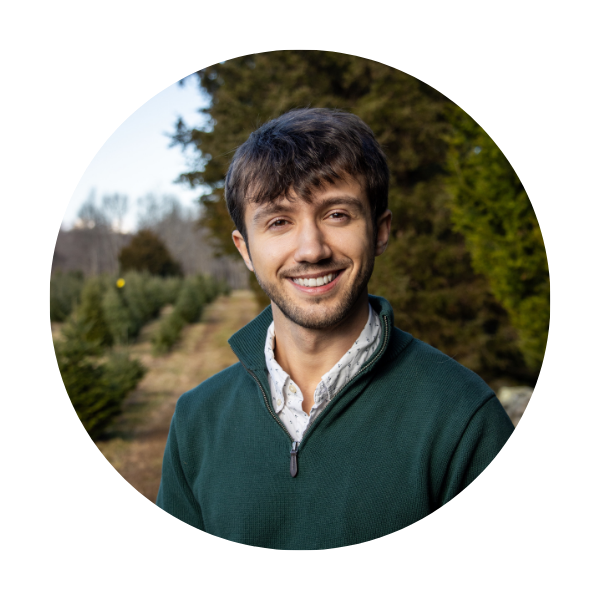
Max Sano
Senior Policy and Coalitions Associate, Beyond Pesticides
Max Sano is the senior policy and coalitions associate at Beyond Pesticides, a national grassroots organization that represents community-based organizations and a range of people seeking to improve protections from pesticides and promote alternative pest management strategies that eliminate reliance on toxic petrochemical-based pesticides. Max holds a B.A. in Environmental Studies, Government, and Middle East Studies at Franklin & Marshall College and a M.A. in Food Studies, Policy, & Advocacy at New York University. He represents Beyond Pesticides in coalitions across the United States and bridges connections with the broader climate movement. Max has years of experience in intersectional climate action, serving on the advisory board of Resilience Youth Network and founder of climate storytelling training nonprofit The Greenzine. His work has been recognized by the UN Food & Agriculture Organization, Riley’s Way Foundation, Udall Foundation, Posse Foundation, Aspen Institute, among others.
- Max’s Advice:
- Advocate for your role, even if it does not currently exist in your organization;
- Cold email organizations that you find interesting/their work resonating with you! Small and medium-sized nonprofit advocacy organizations sometimes have capacity constraints in seeking out new staff members/fellows, so I would recommend making their lives easier by having materials (resume, essay, multimedia project, presentation, community initiative) and your ask (what role you are looking for, what you can bring to the team, and what you would like to learn.) I emailed my thesis, thesis presentation slides, and copy of resume at the right time to my current workplace and they were also looking to hire a policy advocate type.
- Take advantage of free/reduced cost certification programs and conferences as a student:
- As a graduate student, I was able to get over 50% a soil health certification course hosted by Cornell University to augment my education by hearing directly from soil health scientists, experts, and other farmers/students from across the globe. This course has come in handy for the more technical aspects of the work I do on soil health and carbon sequestration.
- Ask your career center, your professors, fellow students about what conferences are available and whether they have a connection to attend as a student.
- Knowing when to ask for help is important to avoid burnout or the fear of overpromising and underdelivering.
- Appreciate the grey zones and intersectional nature of climate advocacy, as they are valuable in professional life:
- In my career search, I was seeking out organizations that share the values of holistic solution making and acknowledging the intersectional nature of climate work. Knowing what you are passionate about helped me focus on organizations that satisfied my interests and career goals, however if you don’t know that yet that’s okay as well! Alternatively, I also looked for organizations that may have job openings with relevant skills/past experiences even if they were not working on my dream set of issues. Your skills, your passions/career goals, or some combination of the two can help steer your search!
- Learning how to apply lessons from one issue area to another is very valuable. For example, a strategy or approach that works on a bill to eliminate forever chemicals in pesticide products in Maryland may prove valuable to a pollinator protection bill in Oregon. Don’t lose the forest through the trees!
- Advocate for your role, even if it does not currently exist in your organization;
GW Graduate Degree Information Table: |
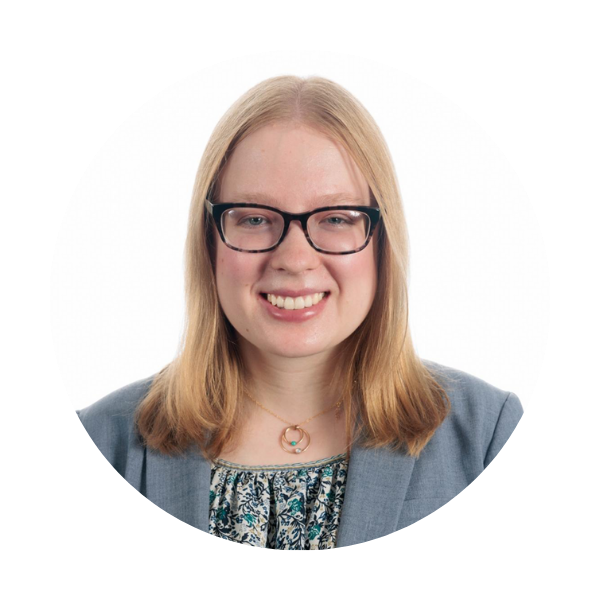
Erin Carlin
Program Manager for GW’s Academic Sustainability Programs
Erin Carlin, Program Manager for GW’s Academic Sustainability Programs, will be available to discuss graduate programs. She is the Program Manager of Academic Sustainability Programs under the GW Alliance for a Sustainable Future. Before joining GW in 2022, she worked as the Head of Project Development for a startup company focused on reducing carbon dioxide emissions from the cement / concrete supply chain. Ms. Carlin received a B.S. in Environmental Science with a concentration in Environmental Studies and a minor in Philosophy from the University of Scranton. During her time at the University of Scranton, she assisted with campus sustainability efforts as a student employee in the Office of Sustainability and completed her honors thesis research on climate change rhetoric.


